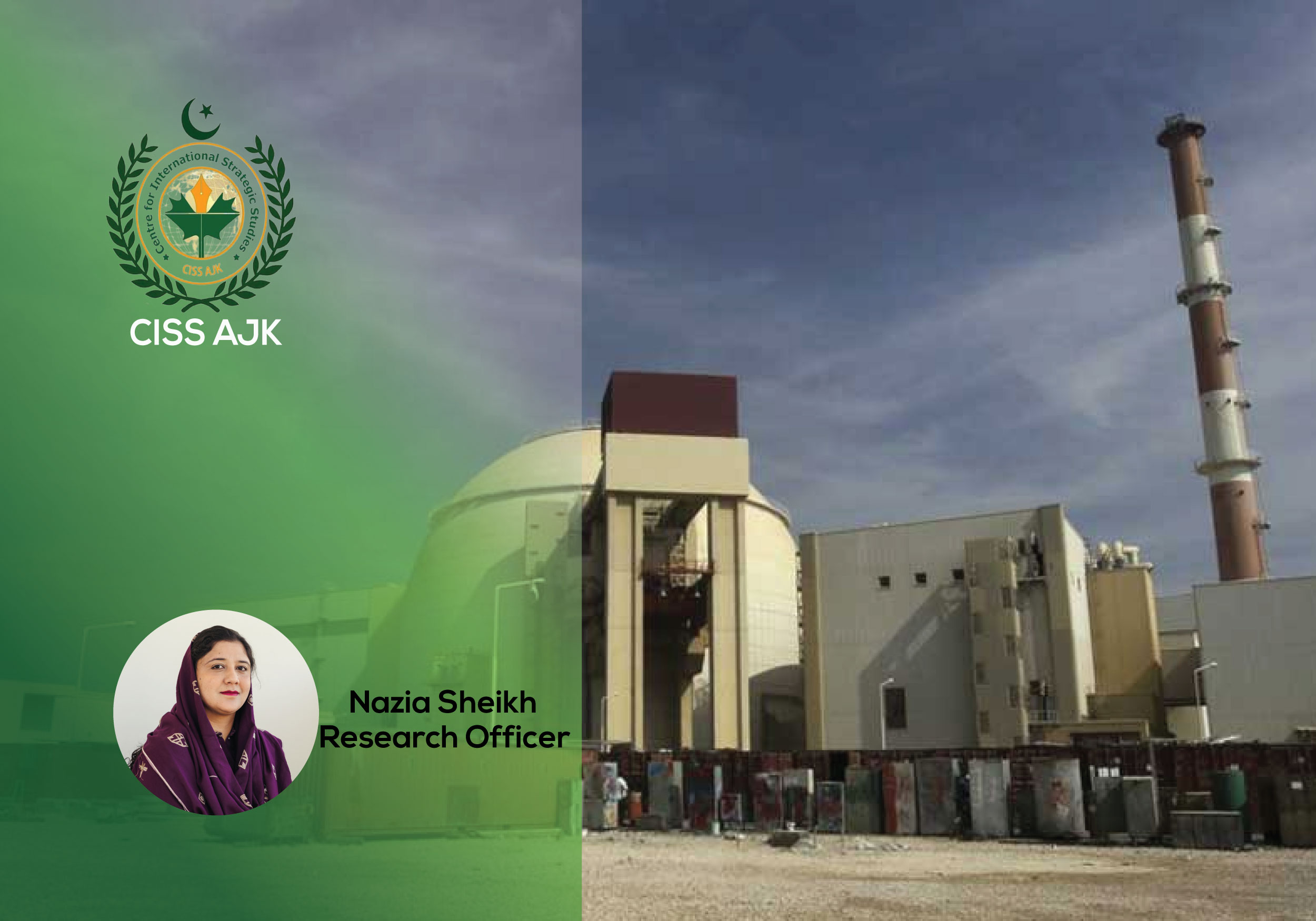Iran’s nuclear program has remained one of the most crucial foreign policy issues for the US. After the invasion of Ukraine by Russia, Ukraine feels how much compulsory nuclear weapon is for state security as Ukraine surrendered all its nuclear stockpiles under the Budapest memorandum. It is the failure of the international community to protect Ukraine against Russian aggression under the Budapest memorandum. The invasion of Ukraine motivated Iran to restart its uranium enrichment to secure itself from meeting the same fate.
Iran’s past activities regarding its nuclear program were restricted under the joint comprehensive plan of action agreement (JCPOA) which was signed between Iran, UK, US, France, Germany, Russia, and China in 2015. The agreement puts restrictions on Iran’s nuclear program in exchange for uplifting harsh sanctions. But the deal began to fail in 2018 when Donald Trump stepped back from the treaty and again re-imposed economic sanctions on Iran. In 2019, Iran exhibited rebellion against this agreement as a result of the re-imposition of sanctions on it and restarted uranium enrichment at the Fordow plant at high levels.
The International Atomic Energy Agency (IAEA) inspections were given a green light by the Iranian government. By October 2022, through a secret report, IAEA assessed that Iran has started high-level enrichment at the Nantaz underground plant. IR-.6 Centrifuges Being installed at Nantaz is seven to eight time powerful than the IR machines allowed Iran under the nuclear deal.
In November this year, the head of atomic energy of Iran said that uranium enrichment at 60% has started at the secret Fardow plant but that is below weapon grade. A resolution by IAEA made it compulsory for Iran to cooperate regarding 3 underground sites of uranium enrichment.
Iran nuclear chief Muhammad Eslami said that we restarted uranium enrichment at Fordow because political pressure and sanctions will not change the approach of Iran towards its nuclear program. After the breach of the deal by Trump, it was hoped that succeeded candidate Joe Biden will rejoin the deal, but after the killing of Iran’s top scientist Mohsen Fakhrizadeh in November 2021, Iran restarted its uranium enrichment and blamed Israel.
A top representative for US national Security Council, John Kirby said that the US has serious concerns regarding Iran’s nuclear program and all choices are accessible to President Joe Biden. He also said that our policy will remain the same on Iran’s nuclear program and we will not allow Iran to develop a nuclear program at any cost. Although Iran wants to assure that its nuclear program is for peaceful motives, there are fears that uranium enrichment of 60% can be a step towards making a nuclear weapon which is around 90%.
Much against the hopes, in October 2022 US secretary of state Antony Blinken said that he saw little scope to restart the deal. The West is questioning Iran for providing hundred of drones to Russia. Bringing back the deal 2015 by Joe Biden can be seen preference of the US for Ukraine.
IAEA inspectors, led by its deputy director general for safeguards, Massimo Aparo, visited Tehran to meet Mohammad Eslami, head of Iran’s Atomic Energy Organization. The Iranian foreign minister, Hussein Amir Abdullah, described the visit as optimistic and fruitful. A senior adviser Kamal Kharrazi to supreme leader Ayatollah Khamenei, speaking at a conference in Tehran said that Iran is ready to rejoin the JCPOA obligations. Many problems have been tackled in the talk, and only one issue remaining is safeguarding; soon this issue can be resolved during the visit of UN nuclear agency’s visit to Tehran.
In November 2022 international atomic energy delegation led by IAEA’s deputy director general Massimo Aparo with an Iranian team and met the head of Iran’s atomic energy agency organization Mohammad Eslami. Iranian student news agency ISNA said that both sides exchanged views on future cooperation and programs along with safeguarding issues. Muhammad Eslami said that we are optimistic about the IAEA visit that can help in resolving the issues between Iran and US.
On the 20th of December 2022 European Union foreign policy chief Josep Borrell meet with Iran’s foreign minister Hussein Amirabdollahian in Jordan, both sides agree to restore the deal despite a worse relationship.
We can say that there seems optimism when it comes to the future of the deal. If the deal happens between both parties, it is a successful step towards regional stability. And after the deal, if Iran abides by it, it could prove to be a bridge for both states to build trust. If the deal does not take place between Iran and US, they need to determine red lines to stop escalating tensions on the nuclear program. Both sides can also communicate with each other through European and regional mediation. There is no doubt that Iran presents serious security challenges to the U.S. and its strategic partners, and that their missile forces already present a major threat within their respective regions. It is, however, important to put this challenge in context. The missile threat goes far beyond the delivery of nuclear weapons and is already becoming far more dangerous at a regional level.
The United States and its allies should continue to seek military and diplomatic ways to blunt the threat of Iranian weapons through the JCPOA. In JCPOA Iran’s missile capability was not taken into consideration, so in the restart of the new deal, Iran’s missile capability must be taken into observance by the international atomic energy agency. Until these efforts succeed, however, USA and Iran should seek ways to strengthen strategic stability and reduce the risk of unplanned increases in the case of a crisis. Such measures could include direct communication hotlines between military commanders, and efficient diplomatic channels using a pre-arranged third party.



